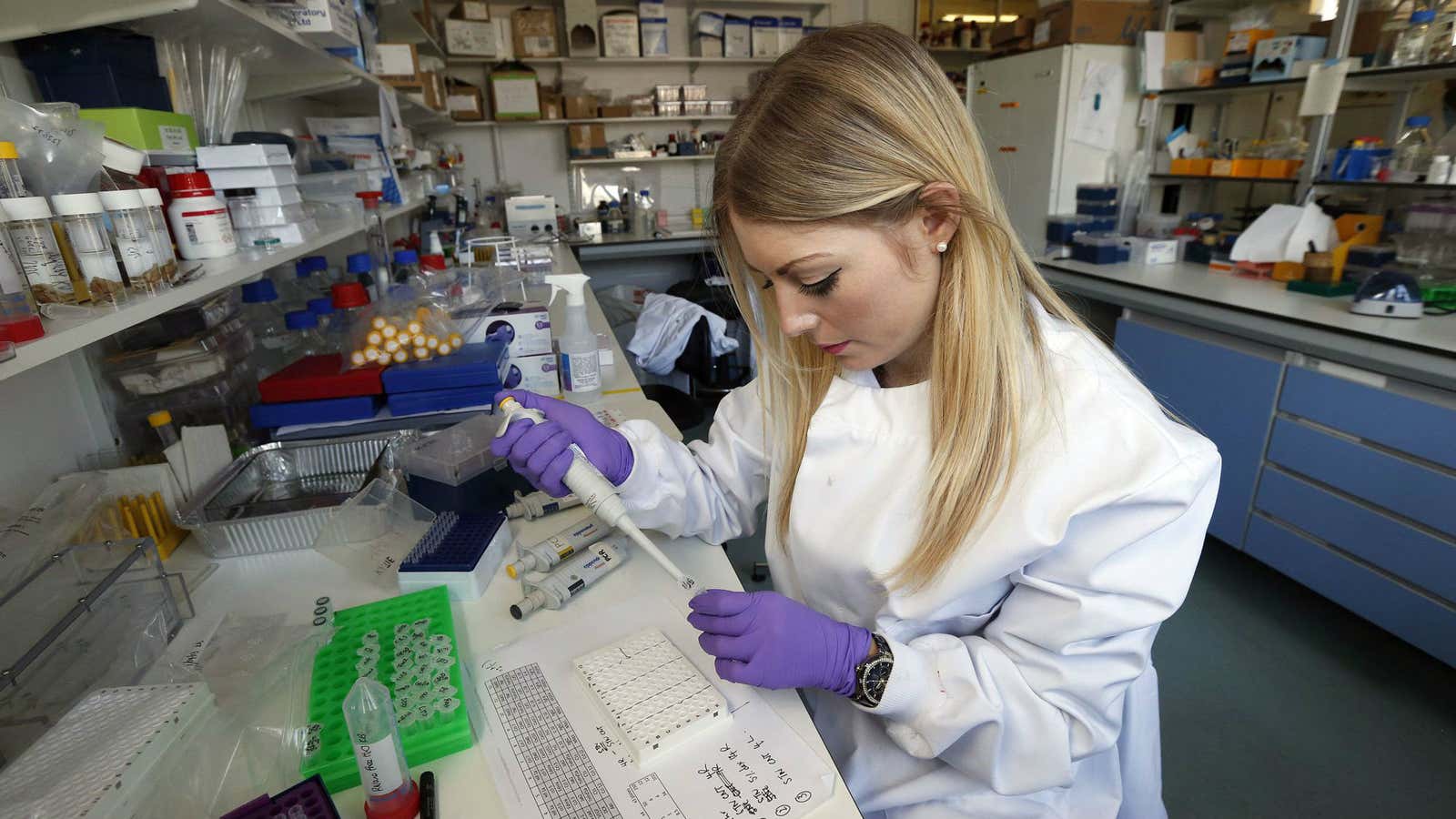A female scientist asked a prominent elder in her field about how she should deal with a lab advisor who frequently looked down her shirt. This was the response she got:
“As long as your adviser does not move on to other advances, I suggest you put up with it, with good humor if you can. Just make sure that he is listening to you and your ideas, taking in the results you are presenting, and taking your science seriously. His attention on your chest may be unwelcome, but you need his attention on your science and his best advice.”
Those are the words of Alice Huang, a 76-year-old microbiologist and former president of the American Association for the Advancement of Science, in her “Ask Alice” online advice column for the “Science Careers” section of Science, one of the world’s most prestigious research journals.
On Monday, following a storm of complaints aired on Twitter, Huang’s column—an archived version of which can be viewed here—was taken down from the Science website and replaced with an editor’s note, stating “it did not meet our editorial standards, was inconsistent with our extensive institutional efforts to promote the role of women in science, and had not been reviewed by experts knowledgeable about laws regarding sexual harassment in the workplace.”
Huang, who has been doling out advice in Science since October of 2014, has been lauded for multiple discoveries about how viruses work. She is also a member of both the Rockefeller and the Waksman foundations’ boards of trustees. In 2001, the American Society for Microbiology gave her an award specifically for “major contributions toward fostering the inclusion, development, and advancement of women in careers in microbiology.”
The biography that appears beneath each of her Science column lists impressive accomplishments—including academic posts at Harvard, New York University, and the California Institute of Technology— and also says: “Throughout her career, Dr. Huang has advocated for women in science.”
Huang’s advice on leering advisors, standing up to senior faculty, and wearing earrings in the lab is grounded in decades of personal experience. But, as she herself wrote in one column, “times are changing,” and women in science are no longer willing to look the other way when male colleagues make them uncomfortable in certain ways.
That a prominent woman in this field is advising up-and-comers to remain passive underscores why some women don’t enter the field in the first place.
